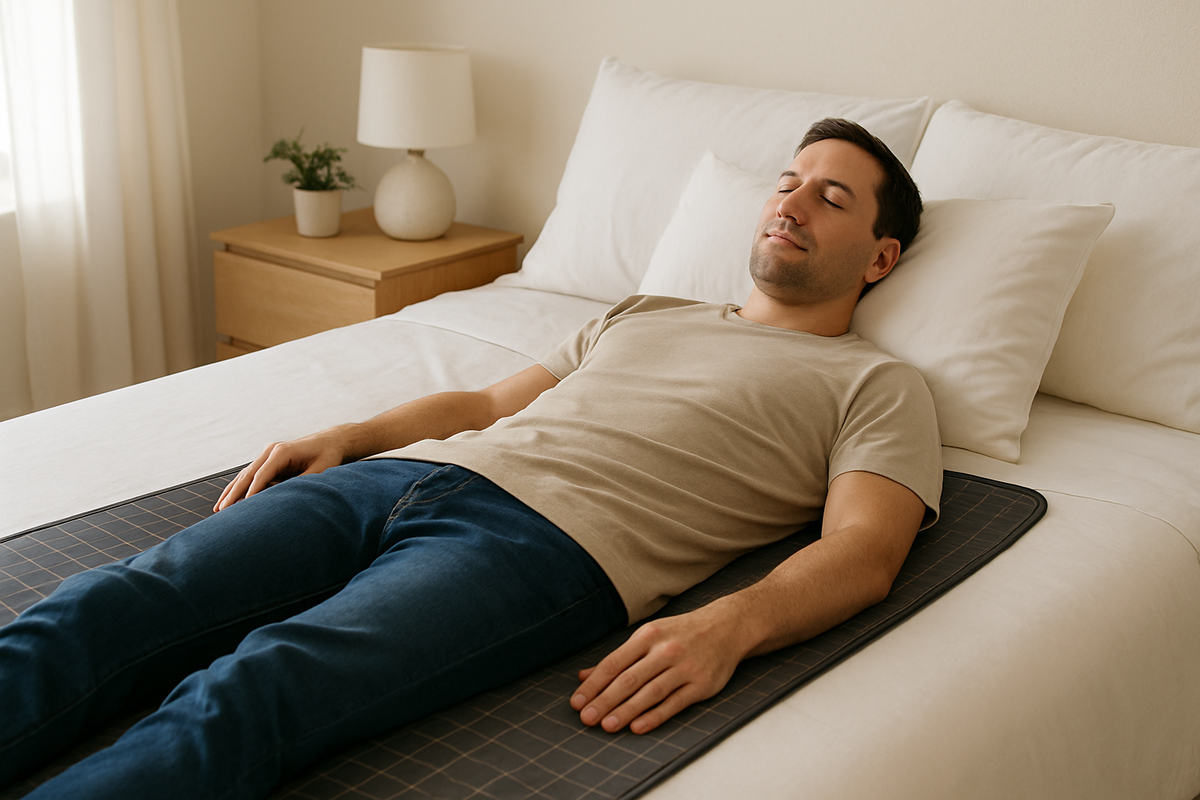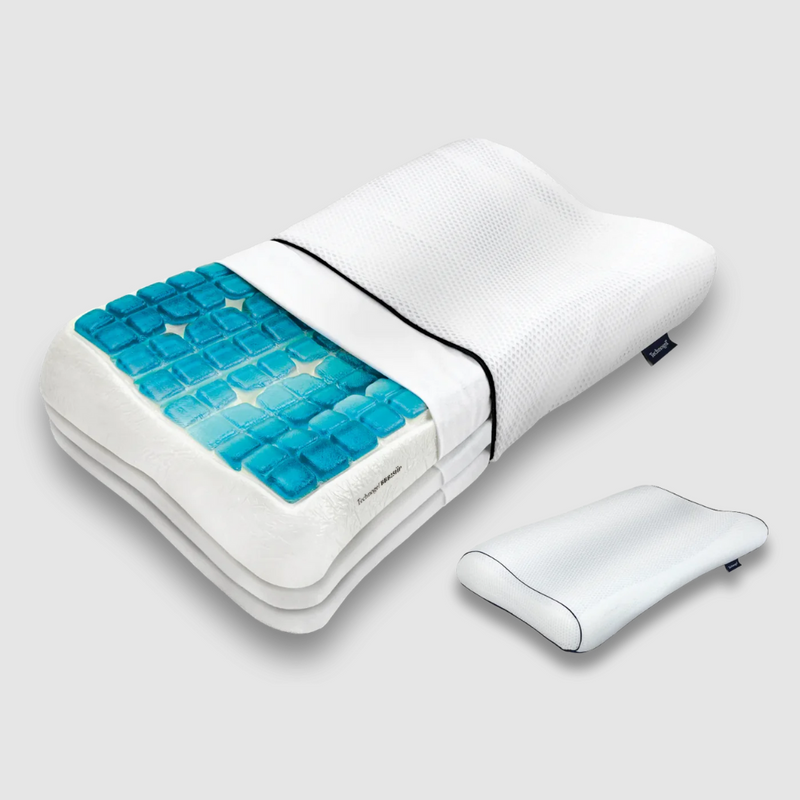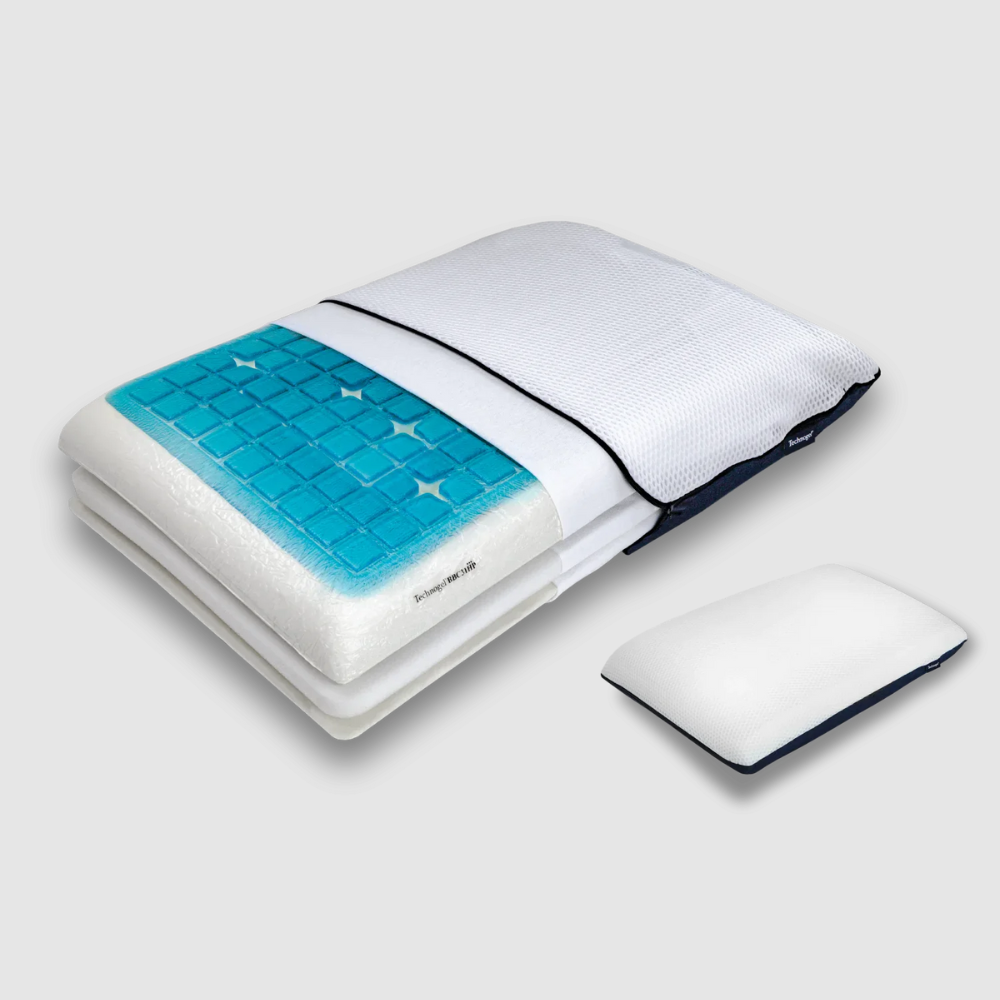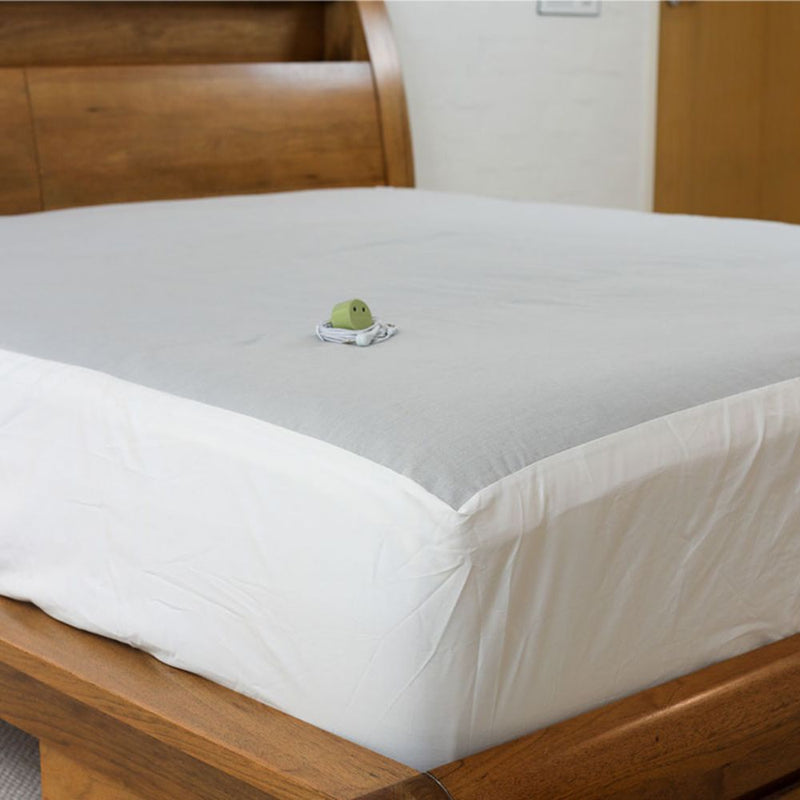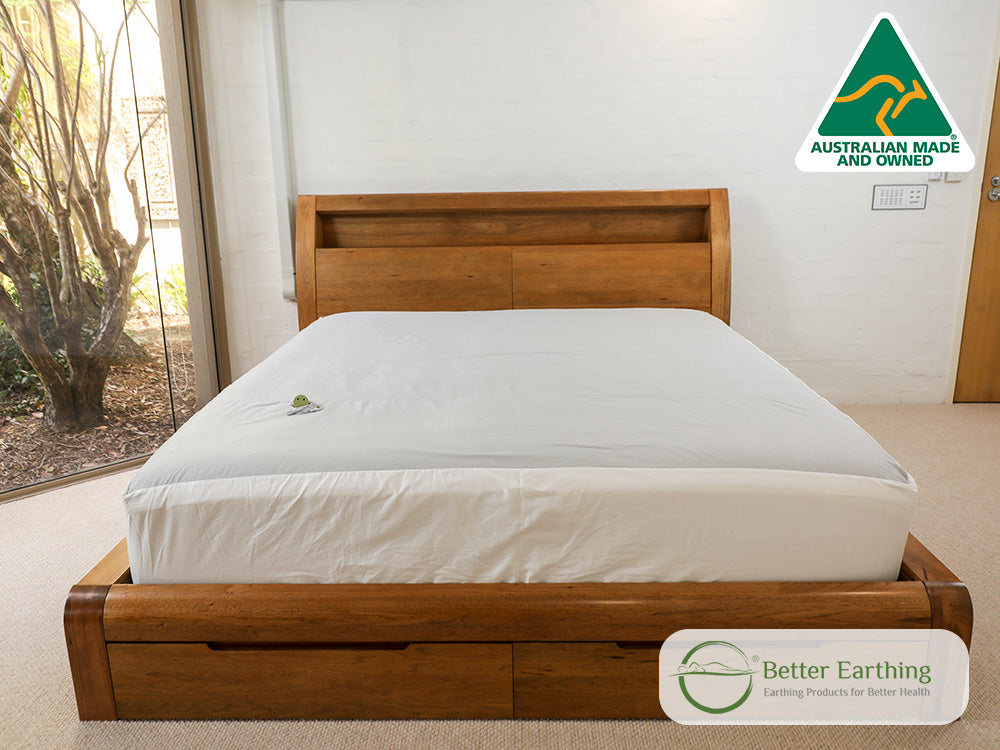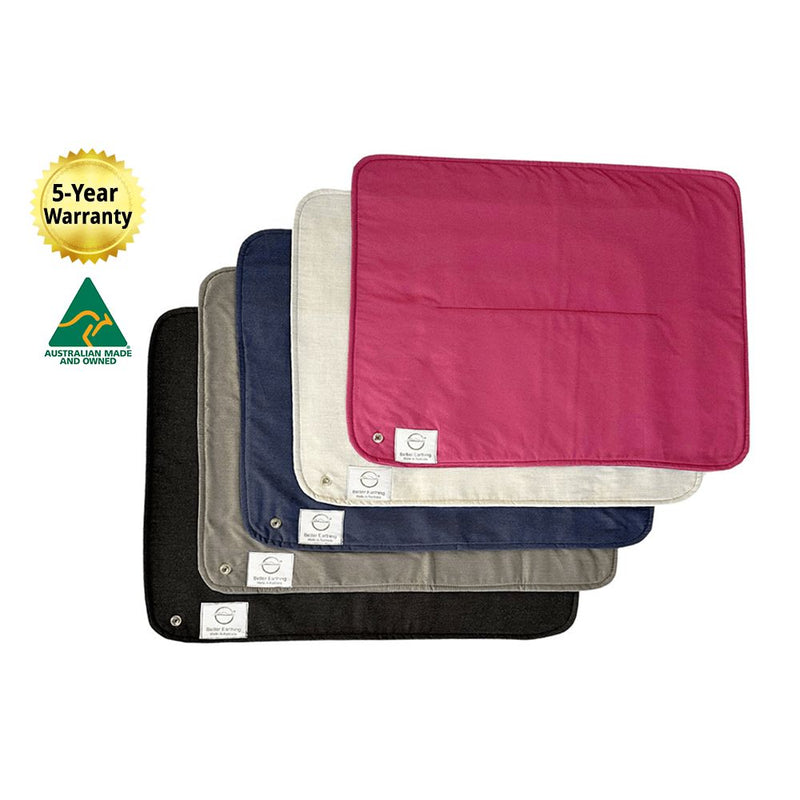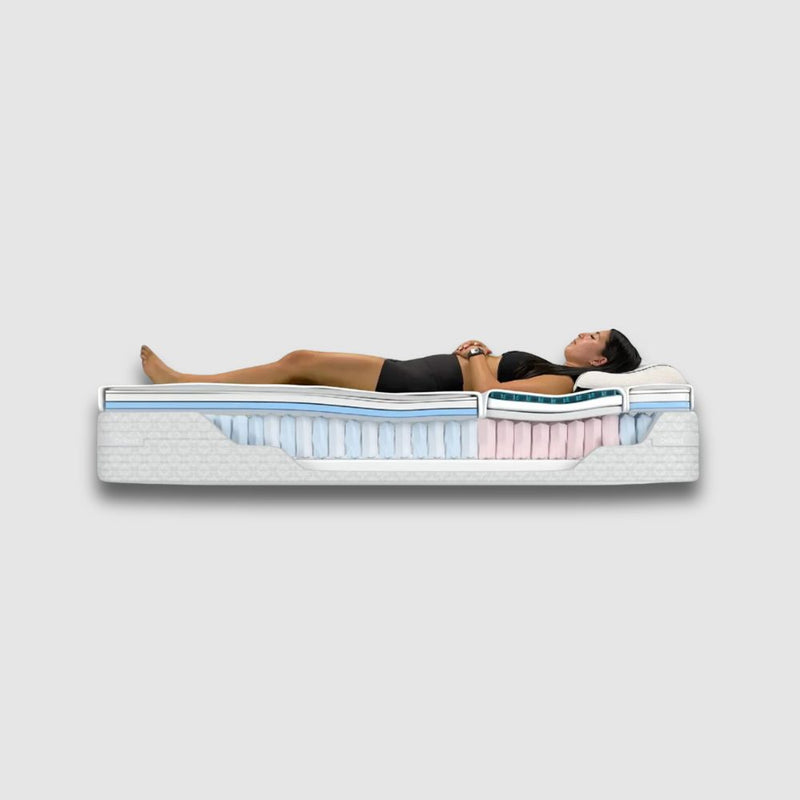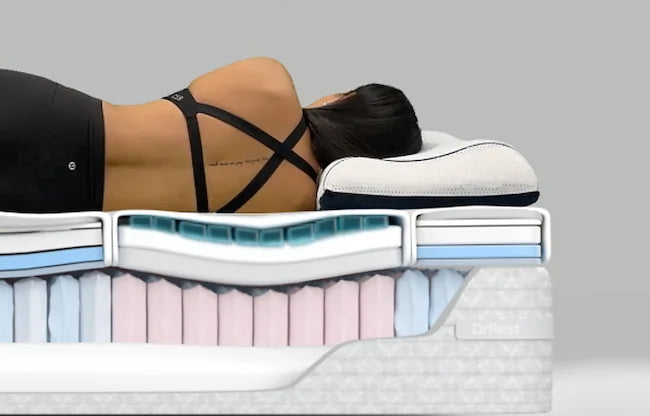In recent years, “grounding” or “earthing” has gained attention (especially on social media) as a simple yet powerful tool to improve sleep and overall well-being.
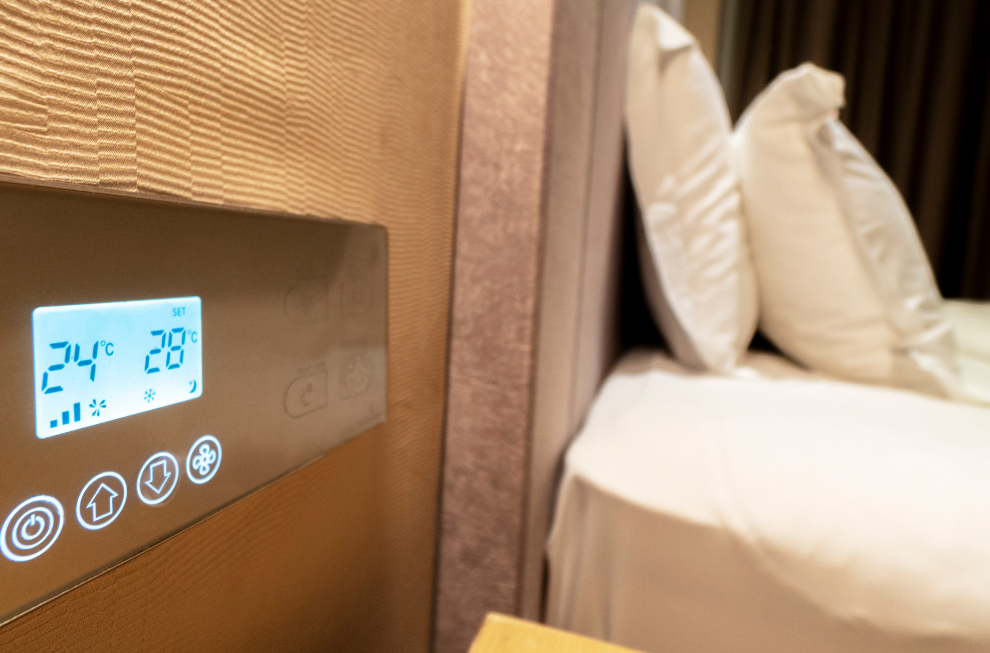
The Role of Room and Core Temperature in Sleep Quality
Sleep is one of the most important factors for good health, yet many people struggle to get enough of it. While stress, diet, and daily habits all play a role, temperature is one of the most overlooked parts contributing sleep quality. Both the temperature of your bedroom and your body’s core temperature affect how easily you fall asleep and how deeply you rest.
Take a moment to understand the follow key points.
Your Body Temperature Changes at Night.
Our bodies follow a natural daily rhythm called the "circadian rhythm". The signals for this begins at dawn, with sunrise. This rhythm controls many metabolic functions, including when we feel awake and when we feel sleepy.
Most people are unaware that as your bedtime approaches, your body's core temperature naturally drops by about 1–2°C (1.5–3.5°F). This cooling signals to your brain that it’s time to sleep. If your body stays too warm, it can delay this process and make it harder to drift off (Kräuchi & Deboer, 2010).
If you have ever had a fever, you'll know just how hard it is to fall asleep!
The Ideal Room Temperature
The environment around you plays just as big a role as your internal body temperature. Research shows that the best room temperature for sleep is usually between 16°C and 19°C (60–68°F) (Okamoto-Mizuno & Mizuno, 2012).
When your bedroom is too hot or too cold, your body has to work harder to regulate itself. This can cause more tossing and turning, lighter sleep, and even waking up during the night.
Heat and Sleep Disturbances
Heat can be especially disruptive. Studies show that high nighttime temperatures increase wakefulness and reduce time spent in deep and REM sleep (Lan et al., 2017).
These stages of sleep are important for muscle recovery, memory, and mood regulation. That’s why many people find it more difficult to sleep well during hot summer nights, especially without air conditioning.
Cooling the Body for Better Rest
Simple habits can help your body cool down before bed. A lukewarm shower, light pajamas, breathable lightweight bedding, and keeping the bedroom dark all support your body’s natural temperature drop.
Interestingly, the warm shower before bed can help, because it increases blood flow to the skin. This allows heat to leave the body easier, helping you cool down once you’re in bed (Horne & Reid, 1985).
We supply mattresses and pillows that not only support your spine, but also help you drop your core temp, helping to make sleep deeper, for longer.
Why Temperature Matters
Getting the right balance of room and body temperature can make the difference between restless nights and deep, refreshing sleep. By paying attention to your sleep environment, you can improve not just how long you sleep, but also how well you sleep.
Put simply, better sleep means better focus, stronger immunity, and more energy.
References
- Kräuchi, K., & Deboer, T. (2010). The interrelationship between sleep regulation and thermoregulation. Frontiers in Bioscience, 15, 604–625
- Okamoto-Mizuno, K., & Mizuno, K. (2012). Effects of thermal environment on sleep and circadian rhythm. Journal of Physiological Anthropology, 31(1), 14
- Lan, L., Tsuzuki, K., Liu, Y. F., & Lian, Z. (2017). Thermal environment and sleep quality: A review. Energy and Buildings, 149, 101–113
- Horne, J. A., & Reid, A. J. (1985). Night-time sleep EEG changes following body heating in a warm bath. Electroencephalography and Clinical Neurophysiology, 60(2), 154–157.
Both your room temperature and your core temperature are related to how well you sleep. As much as you want to rug up with 2 layers of bedding and long sleeve pyjamas, think twice, as your sleep quality can decline.
A good night’s sleep is one of the most important parts of staying healthy as it helps your body repair muscles, reduce stress, and recharge your mind for the next day. But many people overlook one key factor that can quietly affect sleep quality.
Read More
Related Products
- Regular Price
- from $519.00
- Sale Price
- from $519.00
- Regular Price
-
- Unit Price
- per
- Regular Price
- $119.00
- Sale Price
- $119.00
- Regular Price
-
- Unit Price
- per
- Regular Price
- from $3,299.00
- Sale Price
- from $3,299.00
- Regular Price
-
$0.00
- Unit Price
- per
